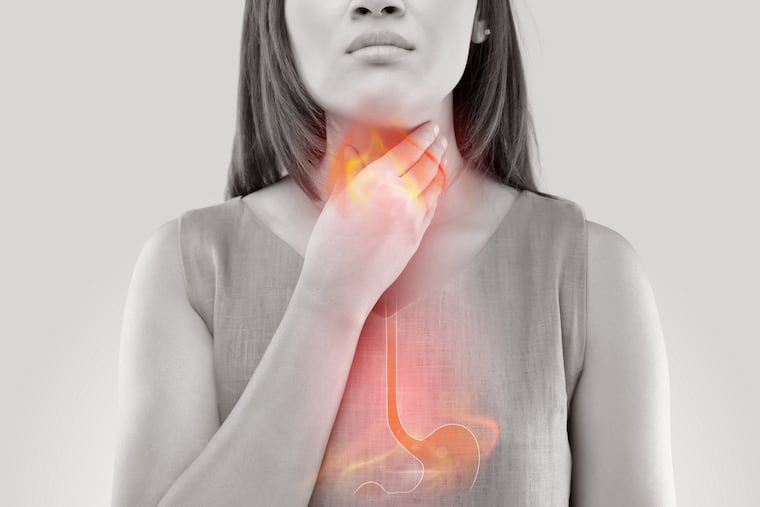Q&A: Is postnasal drip a sign of ‘silent’ acid reflux?
Silent acid reflux, like normal gastroesophageal reflux (GERD), occurs when food or acid from the stomach backflows up into the esophagus, causing irritation, coughing and difficulty swallowing.

Question: Is my postnasal drip a symptom of “silent” acid reflux?
Answer: In the heart of cold and flu season, a runny nose and postnasal drip are common, and usually benign, occurrences. For many people, these symptoms are easy to diagnose and manage. However, if you experience postnasal drip without producing mucus when you cough or blow your nose, that drip you feel may be a symptom of laryngopharyngeal reflux — or “silent” acid reflux.
When you have a cold, flu or even allergies, your body produces excess mucus or mucus that is thicker than usual. Postnasal drip occurs when that excess mucus runs down the back of your nose and into your throat, which can trigger a cough, sore or scratchy throat, and the feeling of a lump in your throat. These symptoms can share a close resemblance to symptoms of silent acid reflux.
Silent acid reflux, like normal gastroesophageal reflux (GERD), occurs when food or acid from the stomach backflows up into the esophagus, causing irritation, coughing, difficulty swallowing and heartburn. Unlike GERD, silent acid reflux usually does not induce heartburn — which is one of the more recognizable symptoms of reflux. Therefore, silent acid reflux can be easily overlooked or misdiagnosed. In some cases, patients with a history of silent acid reflux may believe they have longstanding sinus issues and even take unnecessary or incorrect medications. If not properly treated, silent acid reflux can lead to vocal fatigue or scarring, breathing problems (such as asthma or bronchitis) and, in rare cases, an increased risk of lung, throat or esophageal cancer.
Treatment for silent acid reflux and GERD should be individualized, so it is important to talk to your doctor to find the best course of treatment for you. In addition to prescribed or over-the-counter medications, you can help manage your silent acid reflux with the following behavioral modifications:
Lose weight, if needed.
Avoid alcohol.
Quit smoking, if you are a smoker.
Avoid foods and drinks that can worsen your reflux, such as chocolate, fatty or spicy foods, carbonated beverages, red wine and caffeine.
Avoid eating at least three hours before going to bed.
Talk to your doctor to help identify the root cause of your symptoms and, if necessary, identify the treatment plan that is right for you.
Dean Drezner, MD, is an ear, nose and throat specialist at Mercy Fitzgerald Hospital.